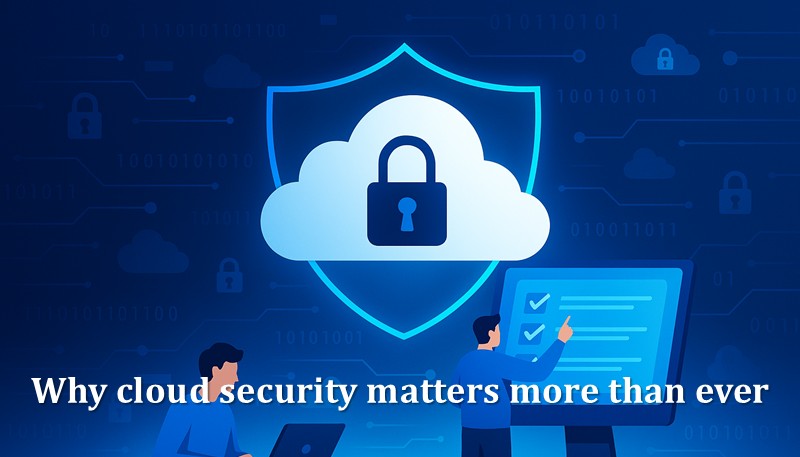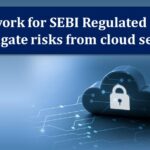Every year on April 3rd, we celebrate World Cloud Security Day – a timely reminder for businesses, especially in the IT industry, to revisit how they protect confidential client information. For legal-tech companies providing software solutions to clients, confidentiality is not just important, it’s essential for maintaining trust and compliance. As software solution providers increasingly rely on cloud-based software solutions, vigilance around cloud security becomes critical. In 2024, the global average cost of a data breach reached $4.88 million, marking a 10% increase from the previous year and the highest recorded to date. It is also reported that, over 60% of organisations reported security incidents related to public cloud usage in 2024, highlighting the growing challenges in securing cloud environments.
Legal-tech companies, and for that matter any software service providers, and their customers face various risks when handling sensitive information online. These risks include data breaches, phishing attacks and insider threats.
Data breaches, where unauthorized individuals gain access to sensitive client information, can severely damage a company’s reputation and client relationships.
Phishing attacks deceive users into revealing credentials or sensitive information through seemingly legitimate communications.
Additionally, insider threats, either accidental or deliberate, can result in unauthorized access or leakage of confidential data. Misconfigured cloud settings, if overlooked, can also unintentionally expose sensitive data.
Security is everybody’s responsibility, and it is also a shared responsibility between the software solution providers and their customers plus end users. Let us categorically see the responsibilities of the software service providers and their customers.
Software Solution Providers need to take care of the following
-
Implement Strong Data Encryption: Provide built-in encryption for data at rest and in transit ensuring sensitive information remains secure.
-
Conduct Regular Security Audits: Periodically audit cloud environments and the applications to detect and address vulnerabilities proactively.
-
Access Control Management: Offer easy-to-use features to manage and limit user access based on roles and requirements. Always follow principle of least privilege.
-
Monitor and Track User Activity: Implement monitoring tools to identify and respond to unauthorized activities or anomalies.
-
Vendor and Third-party Security Assessment: Regularly evaluate and ensure third-party vendors meet stringent security standards.
-
Incident Response Planning: Develop and maintain a clear and documented plan outlining steps to address security breaches effectively.
-
Regular Employee Training: Conduct frequent training sessions to educate internal staff about cybersecurity threats, prevention, and best practices.
-
Regular Software Updates and Patching: Ensure software and systems are regularly updated and patched to protect against vulnerabilities.
On the other hand, customers and end-user responsibility includes
-
Use Strong and Unique Passwords: Create and manage robust, unique passwords and changing them regularly.
-
Enable Multi-factor Authentication (MFA): Activate MFA on accounts to provide an additional layer of protection beyond passwords.
-
Recognize and Report Phishing Attacks: Stay vigilant and report suspicious emails, messages, or attempts to gain sensitive information.
-
Regularly Review Access Permissions: Periodically check and update who has access to sensitive data, especially when team roles change.
-
Use Secure Networks and Trusted Devices: Avoid accessing sensitive information through public or unsecured Wi-Fi networks or devices without adequate security protections.
-
Prompt Incident Reporting: Immediately inform providers of any suspicious activities or suspected breaches.
-
Implement Data Minimization Practices: Regularly evaluate stored information, keeping only what is necessary, reducing exposure risk.
-
Maintain Strong Data Backup Practices: Regularly back up essential data securely, aiding recovery in case of a breach or accidental loss.
The bad news is, despite proactive measures, breaches can sometimes occur. In such cases, immediate actions such as changing compromised passwords, restricting unauthorized access and transparently communicating with affected parties and all other stakeholders are essential and not it is a CERT-In mandate. Promptly reporting incidents to regulatory authorities and maintaining clear, proactive communication helps manage potential reputational risks and retain client trust.
Robust cloud security is not just about regulatory compliance, it is about building lasting trust and a reliable reputation. Demonstrating rigorous security practices gives legal tech companies a distinct competitive advantage, attracting and retaining customers through proven reliability and commitment to data confidentiality.
Cloud security does not have to be intimidating. By adopting straightforward, effective practices and collaborating closely with customers, the software service providers can confidently protect confidential information. On World Cloud Security Day, let us reaffirm our collective commitment to upholding the highest standards of cloud security and confidentiality.
Written by: Sovan Das
Disclaimer
This content is intended for informational purposes only and does not constitute a legal opinion. Despite our efforts to maintain accuracy, we do not make representations, warranties or undertakings regarding the quality, completeness or reliability of the content. Readers are encouraged to seek legal counsel prior to acting upon any of the information provided herein. This content, including the design, text, graphics, their selection and arrangement, is Copyright 2024, Lexplosion Solutions Private Limited or its licensors. ALL RIGHTS RESERVED, and all moral rights are asserted and reserved.
For any clarifications, please reach out to us at 91-33-40618083 or inquiries@lexplosion.in. Refer to our privacy policy by clicking here.





